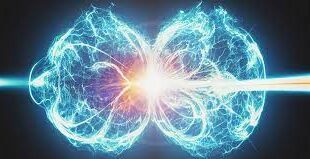Germany is seeking an EU delay to some of the rules on green hydrogen production to allow the industry to take off and produce clean hydrogen at lower costs, Germany’s Economy Minister Robert Habeck wrote this week in a letter to EU Energy Commissioner Kadri Simson seen by Bloomberg.
The EU and Germany are betting on green hydrogen as a fuel for industry.
The EU has set a priority to develop renewable hydrogen and help the uptake of renewable hydrogen, ammonia, and other derivatives in energy-intensive industrial processes and in hard-to-decarbonize sectors, such as transport.
The bloc aims to produce 10 million tons and import 10 million tons of renewable hydrogen by 2030.
Under the EU rules, in 2028 “unless the electricity system is already largely decarbonised, it is crucial to match the electricity demand for hydrogen production with additional renewable electricity generation.”
The so-called “additionality” idea is to ensure that the increased hydrogen production goes hand in hand with new renewable electricity generation capacities, according to the EU.
This “additionality” norm should be delayed until 2035, the German minister argues in the letter, saying that “reality has shown that these requirements were still too high and are slowing down the ramp-up of the projects for the production of renewable hydrogen in Germany and many other member states.”
In addition, the minister wrote, “Many companies have told me that the requirements often don’t allow for the economic realization of electrolysis projects in Germany.”
While Germany supports and is committed to EU regulations, delaying the phasing in of the additionality criteria would help the industry accelerate its development, a spokesperson for the German Economy Ministry told Bloomberg.
In June, the European Commission allowed Germany to grant $3.3 billion (3 billion euros) in state aid to support the construction of a pipeline system for hydrogen transportation. The Commission approved, under EU State aid rules, the German scheme to support the construction of the Hydrogen Core Network (HCN). The network is expected to be the backbone of long-distance transport pipelines for hydrogen in Germany and part of the European hydrogen backbone connecting several EU member states.

 Iran Energy News Oil, Gas, Petrochemical and Energy Field Specialized Channel
Iran Energy News Oil, Gas, Petrochemical and Energy Field Specialized Channel



